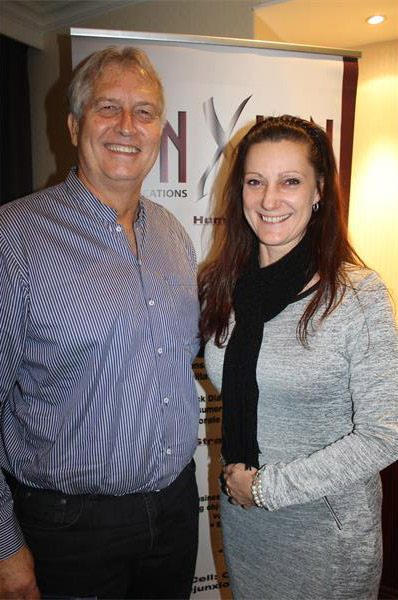Christo Nel Workshops – Leaders must learn to unleash the potential in their employees
MBOMBELA – The city’s current and future business leaders had the rare opportunity last week to learn from one of the best in the business of international leadership.
After more than 30 years in the field, Mr Christo Nel is considered renowned in the areas of leadership development and organisational change. He recently returned from Amsterdam where he had designed and implemented a new MBA leadership programme at the University of Nyerode. He is involved at the University of Stellenbosch Business School.
Ms Estelle Roe from Junxion Communications organised five different interactive events for Nel with business. The workshops were co-hosted by the Nelspruit branch of the South African Council for Business Women (SACBW) as part of their Woman’s Month programme.
These were aimed at rethinking existing ways of running business and were also aimed at youths, SMMEs and women and the unique challenges they face in the workplace.
Nel also appeared at functions at both Travel Today and Woodenways to disseminate leadership skills.
Roe said she aspired to ensure local businesses were afforded access to the high calibre of leadership skills people in bigger cities had easier access to.
“Bringing Nel out to the Lowveld would hopefully leave businesses inspired, enlightened and empowered to take them to the next level,” she said.
During a talk on the Thursday Nel noted that a leader was someone who made things happen.
He said South Africans were in the unique position of having lived through authoritarian rule, freeing themselves from it and developing a vibrant democracy. This positioned South Africans to rethink systems and find creative ways forward: they are living proof of it.

He noted that business has changed similarly: where the strict organogram worked until the 1970s when it still reflected society, things changed drastically with the information and education revolutions, and business best practices had to adapt to be as inclusive and flexible as possible for the broader society.
According to Nel individuals in an organisation should be viewed as potential geniuses with unlimited potential to be unleashed by leaders. These individuals together formed a large web of interaction among people, improving cooperation and stimulating creativity.
To join these webs together, various departments had to work together too, as they were reliant on one another despite performing vastly different functions. Businesses also have to be responsible: In rethinking business, Nel remarked, “You are only as strong as your weakest partner in the community.”
He added that if you haven’t solved a problem, you haven’t struggled with it enough. “You need great patience, humility and perseverance.”
Nel was joined on the Friday by his partner Kerry Sandison, a life coach, in addressing the adversity and anxiety women faced in leadership positions. He explained the three arms determining the politics of an organisation: power, anxiety and love. Together these are the wind in an organisation’s proverbial sails.

The one without the other doesn’t work, according to Nel: power without love is narcissistic and anxiety without power is ineffective.
Work-related anxiety is also not a bad thing.
“Anxiety is a part of life. If you suppress it, like I have done in the past, it can make you ill,” Nel shared from experience.
Creating a culture of (non-romantic) love within an organisation, made people more open to admit mistakes and challenges – and ask for help to the improvement of the entire organisation.
More than one participant agreed that anxiety made them more creative, and that sharing problems or worries more often than not made people step up and help.
Sandison explained the breakdown of effective communication when people regress into acting like a parent (critical or nurturing) or child (rebellious, spontaneous or adapted).
- Read more: The economy is under pressure, but in the Lowveld businesswomen have an exciting year ahead
Each category could be negative or positive, depending on the context, but mostly it is negative. She explained that when two people communicate, ideally it should be as rational adults, each being clear about what they think and need, and listening to the other.
However, often when someone says something the other doesn’t like, the other doesn’t respond as an adult, but as an insulting critical parent or passive aggressive adapted child. As a result, communication breaks down.
Once explained, it seemed obvious, and most women in attendance recognised the patterns from their own lives. Sandison’s advice is to address it.
“Say, ‘What did I say to derail this conversation, and how can we get back on track?’”
Participants noted that women tended to internalise negative messages. “Isn’t it interesting, that when someone else opens their heart you think they are brave, but when you do, you think you are weak and stupid,” one pointed out.
The talks left the business community stimulated and motivated. Attendees were left with fresh perspectives on communication and ways of doing business within an organisation. The women, in particular, agreed to stop being their own and other women’s worst enemies but rather to support themselves and others.
Source : http://lowvelder.co.za/349084/christo-nel-workshops/

